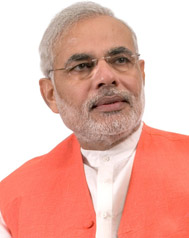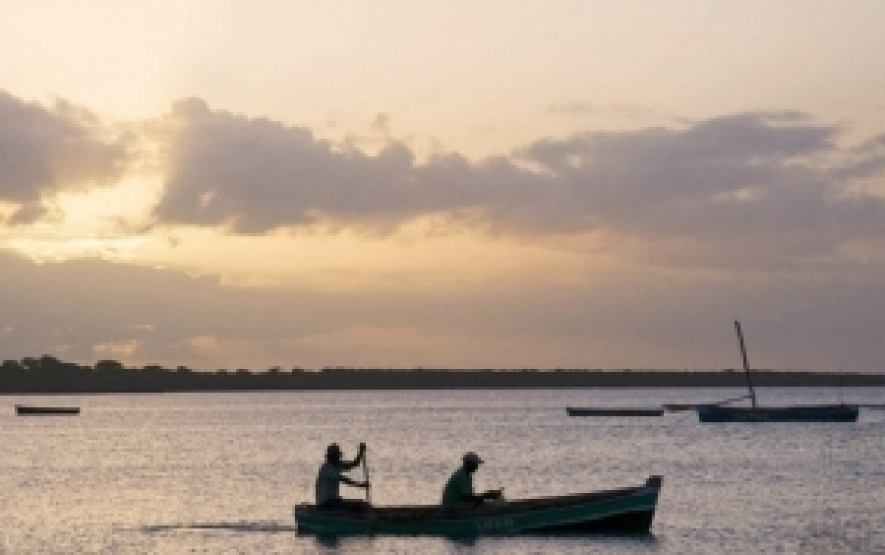There was also the offer of resignations from office by Sonia Gandhi and Rahul Gandhi, the president and vice-presidents of the Congress Party, taking responsibility for its huge defeat, and not surprisingly, this being rejected by the leading membership of the party and no changes yet in the Congress leadership.
In a significant move the prime minister elect of India Mr. Narendra Modi, invited leaders of all other SAARC countries for his swearing in ceremony on May 26, in what is seen by political analysts as a bold step to launch a new policy of regional engagement. Political observers in India attribute much importance to this invitation which includes Prime Minister Nawaz Sharif of Pakistan, President Mahinda Rajapaksa of Sri Lanka and Prime Minister Sheikh Hasina of Bangladesh. Apart from the long standing differences with Pakistan, which were highlighted in Mr. Modi’s election campaign, too, India has not had the best of relations during the latter years of the Congress-led UPA Government, with Bangladesh and Sri Lanka. These relations were largely affected by the pressures of regional politics, especially in West Bengal with regard to Bangladesh and Tamil Nadu on Sri Lanka. Many see the sweeping majority the BJP led by Modi has obtained, as altering this position of regional pressures influencing New Delhi policy, and the certain advantage of the lack of coalition pressures from any party.
President Mahinda Rajapaksa has accepted the invitation and will attend this swearing-in ceremony at the premises of Rashtrapathi Bhawan, which visit could be the beginning of new understandings with India.
While May 26 is accepted by astrologers am auspicious day with very good planetary influences for Mr. Narendra Modi, there was also minor tremors in many parts of India on Wednesday night (21) due to an earthquake in the Bay of Bengal, which was too small of the Richter scale to cause any threat of a tsunami. This is also seen by many as a good omen for the new prime minister, with the belief that nature is also now on his side.
Fisheries
 Meanwhile, the important talks between fishermen of India and Sri Lanka, aimed at evolving a sustainable solution to the Palk Bay conflict, remains in a deadlock, with Sri Lanka’s Northern fishermen urging their Indian counterparts to immediately stop using bottom trawlers, and the Indian fishermen seeking three years of completely phase out trawling. The Sri Lankan fishermen were also not convinced by the Indian fishermen’s offer to bring down the number of days they engage in trawling from 120 to 90. This is a matter that will certainly need the attention of the new government in New Delhi, which will certainly look into the interests of Indian fishermen, but with much less pressure from Tamil Nadu, as happened so far.
Meanwhile, the important talks between fishermen of India and Sri Lanka, aimed at evolving a sustainable solution to the Palk Bay conflict, remains in a deadlock, with Sri Lanka’s Northern fishermen urging their Indian counterparts to immediately stop using bottom trawlers, and the Indian fishermen seeking three years of completely phase out trawling. The Sri Lankan fishermen were also not convinced by the Indian fishermen’s offer to bring down the number of days they engage in trawling from 120 to 90. This is a matter that will certainly need the attention of the new government in New Delhi, which will certainly look into the interests of Indian fishermen, but with much less pressure from Tamil Nadu, as happened so far.
It is significant to note that President Mahinda Rajapaksa, from the time he was Minister of Fisheries, has strongly been of the view that this issue would be best resolved by the fishermen of the two countries themselves, because, as he saw it, the fisherman were only keen on a good catch and not in violating maritime boundaries or creating other problems, that would affect peaceful fishing in these waters. As he has clearly expressed it on many occasions, “the fishermen keep going after the fish, which is their livelihood; it is others who have other interests.” This issue will certainly be of increasing importance in the new neighbourly relations that Narendra Modi may have in mind.
Touching distance
The relations between India and Sri Lanka, and the overall relations within the South Asian region, the role of India in these relations, as well as the necessity for good understandings within South Asia on environment protection, sustainable development, and other key issues including seismic activities and, most importantly, fisheries relations between India and Sri Lanka, featured prominently in the recent Bernard Soysa Centennial Memorial lecture by Shri Gopalkrishna Gandhi, the leading academic, former administrator and diplomat of India, who was a former Indian High Commissioner in Sri Lanka, and is the grandson of Mahatma Gandhi. It was a lecture in which Shri Gandhi echoed the thinking of President Rajapaksa on the lives of fishermen. I reproduce here the concluding section of this lecture which would be on much interest to emerging developments between India and Sri Lanka.
“I want to conclude with what may be called three 'constructive' thoughts - honest cogitations not being considered ‘constructive’!
Within touching distance that we are, India, Sri Lanka, Pakistan, Bangladesh and the Maldives, must do something pioneering about the effect of global warming on our coastlines. The rise of seawaters cannot be seen by us a Maldivian imperative, a Bangladeshi criticality and then, for India, Sri Lanka and Pakistan a theoretical possibility. We are all within the circle of danger.
There ought to be a parallel plan with a seismic core for India, Nepal and Bhutan. The trouble is that we have political philosophers, in our part of the world, of the Left and the Right, and political leaders, but we do not have ecological philosophers and ecological leaders. Political ideologies and political sovereignties can look very anaemic in the face of a mega natural disaster. Amitav Ghosh's amazing novel The Hungry Tide, foresaw the tsunami of 2004. It is the creative exception which tells us we need an Arthur C. Clarke to tell us in fictional-real terms what we face by way of our planet's hidden moods.
Natural disasters
Even outside of the global warming context, our coasts face grave risks. Tsunamis do not occur too often but lesser earthquakes do, cyclones do. Natural disasters cannot be prevented but now, with seismic and satellite technology, we can anticipate them with intelligence and cope with them, more effectively than ever before. Recently, a furious cyclone that hit Odisha caused almost no loss of life because of advance action based on satellite warnings. When cyclones ravage, they make news. When they do not, they are ignored. This one belonged to the latter category. Littoral SAARC ought to have a fail-proof blue-print for the facing and handling of natural disasters peculiar to the region. We need a joint coastal SAARC plan for ocean disaster management. That we do not have one is a wonder. Not to make one now would be a disaster in itself.
The stalled Cetukalvai Thittam, or the Sethusamudram Project, raises many issues, most importantly, ecological issues. These need to be seen not just through the lenses of giant fishing corporates but through the fisherman's ancient instincts, including ecological instincts. In the matter of the seas there is and can be no better expert, no greater specialist. He knows those waters better than any giant conglomerate with marine jaws ever can. Whenever it is that the Project gets to be revived, it will do well to make the fisherman an equal participant in the re-examination.
My second suggestion for our touching distances is about our coasts per se. They are shrinking because of many reasons, including sand-shifts. But they are shrinking and becoming conduits for a greater danger because of the pernicious phenomenon the world over of their becoming dumps for non-degradable garbage. We do not realise this but all our non-degradable waste finds its way into our coasts and thence into the seas along those coasts. Day after day, hour by hour, we are converting our coasts into sewage yards. Is this a hygeine issue, an aesthetic issue, a tourism issue or a plain littoral obsession? Something of all those are involved, but more than anything else this is a civilisational issue.
Countries with coasts must look after their coasts even as Bhutan looks after its mountains.
Linked by the sea
My third and last urging: Linked as India and Lanka are by the sea, let us do something startlingly new, something creative, for that very salt of the earth and sea - the Indo-Lankan fisherman and his good wife and their children.
We hear of our fishermen only when they are apprehended and locked up and not un-often shot at for doing what their DNA has trained them to do, namely, follow fish instinctively as they follow plankton unblinkingly. Fish are stateless, fishermen restless. Fishing on the high seas is one of the most instinct-driven livelihood avocations in human civilization. You might have noticed that I used the phrase Indo-Lankan for the fisherman of the Indo-Lankan seas. If that phrase can be applied to any category of our respective citizenries, it is to the man who rides the wave between our coasts. I am not suggesting that they be given dual citizenship, though if we had that system, the Indo-Lankan fisherman would be the first to deserve it. I am suggesting that we think of a first-such regime wherein fishermen from both the coasts be given joint rights, with zones and timings worked out, so that they can never be law-breakers, turf-breachers. We should devise a system by which trespass by fishermen becomes definitionally impossible.
That would a touching of touching distances.
No one, barring the Leftist believer in the unity of the working classes, will believe that an Indo-Lankan fisherman is a pragmatic idea but, believe me, he is. Who would ever have thought, until it happened, that the great Lankan Shirley Amerasinghe would devise a Law of the Sea that would be adopted by the whole world?
Quoting Sarojini Naidu's great poem on the subject, I shall take your leave:
Rise, brothers, rise; the wakening skies pray to the morning light,
The wind lies asleep in the arms of the dawn like a child that has cried all night.
Come, let us gather our nets from the shore and set our catamarans free,
To capture the leaping wealth of the tide, for we are the kings of the sea!
No longer delay, let us hasten away in the track of the sea gull's call,
The sea is our mother, the cloud is our brother, the waves are our comrades all.
What though we toss at the fall of the sun where the hand of the sea-god drives?
He who holds the storm by the hair, will hide in his breast our lives.
Sweet is the shade of the cocoanut glade, and the scent of the mango grove,
And sweet are the sands at the full o' the moon with the sound of the voices we love;
But sweeter, O brothers, the kiss of the spray and the dance of the wild foam's glee;
Row, brothers, row to the edge of the verge, where the low sky mates with the sea.'
HC/priu







